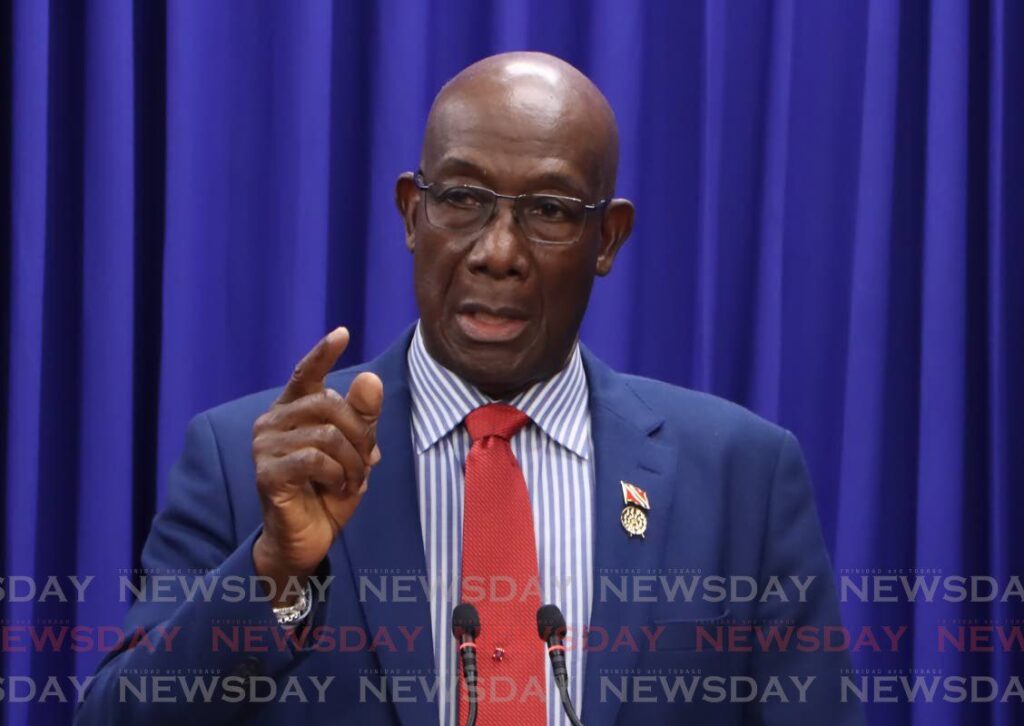SOFA promotes regional security

THE EDITOR: The recent renewal of the Status of Forces Agreement (SOFA) between TT and the US is not a novelty bilateral agreement. This updated 2025 military agreement was initially signed in 2007 but now has an indefinite time arrangement. It signals a pact between a host nation (TT) and a foreign nation (US), regarding allocation of military resources, logistics and personnel.
Against the tide of hope unleashed from this diplomatic development, it is unfortunate that a Newsday article essentialised a discourse to highlight possible cases of the US locating its military in TT, if Venezuela unleashes rogue-state incursions. TT’s Prime Minister Rowley has censured the Newsday article, but he did not enlighten the public about the virtues of SOFA.
Sadly, a sensationalist interpretation of SOFA now prevails in the social and mass media. There is an element of fearmongering among citizens wary of Venezuela’s territorial dispute over the Essequibo Basin with Guyana.
Ironically, the media’s attention is not focused on the treaty’s commitment to fight against illicit drug trafficking, defence of public institutions and the popularity of SOFA interventions in the post-World War II era. Indeed, the treaty heralds opportunity to strengthen regional security.
Firstly, the website of the US Embassy in TT lucidly quotes the US ambassador as considering SOFA to enable both nations to update their past 2007 bilateral contract, with the contemporary rule of law in both jurisdictions.
The US ambassador, Candace Bond, transparently highlights how SOFA seeks to reinforce TT’s entrusted military and crime-fighting agencies. OFA reconciles with the multilateral Treaty of San Jose that caters for increased collaboration by the two nations to fight the illicit maritime and air-trafficking of drugs.
SOFA also reiterates the commitment of both nations to the Southcom Initiative that is geared towards regional defence and security. Furthermore, SOFA formulates the rationale for the US to render technical assistance to enhance the infrastructural capabilities of the TT Coast Guard via the CBSI-TAFT intervention. SOFA also recognises the ACSA framework to establish the eligibility of TT to gain logistic support and supplies to buffer its defence capabilities.
Apart from conceding that SOFA does not constitute an aggressive diplomatic overture against Venezuela, we must appreciate that SOFA maps out the civic and criminal liabilities that the US’s military personnel may be individually culpable to, if they breach TT’s legal codes.
If the US military engages in temporary occupation in TT’s maritime boundaries, SOFA controversially outlines that disciplinary procedures and sanctions will be imposed by US-based courts. While this situation will ornamentally undermine the sovereignty of TT’s jurisprudence, political autonomy and economic enfranchisement remain intact.
A final view in defence of SOFA is that it is far from being a big bad wolf in global diplomacy. In the post-Nazi formation of the new world order, SOFAs have thrived, without disrupting host nations’ national interests.
In the current era, the US has SOFA obligations to NATO nations as a form of military protection against Russia’s advancement. Furthermore, the end of the Korean War necessitated the US’s large military presence along the 38th line of latitude that demarcates the demilitarised zone, to guard against North Korean attacks.
In the past decade, Japan has benefited from a SOFA alliance with the US, warding off expansionist threats from China and Russia. Although SOFA interventions are mainly propagated by the US, other G8 nations like Germany and France forge military alliances with host nations, and benefit from becoming stable democracies.
Signatory member states of SOFA that have partnered with the US rarely complain about political, economic and social development being dictated by the US.
America’s agenda in renewing a SOFA with TT is of a mutualistic nature. By ensuring that the Orinoco Basin optimises geopolitical stability, both nations perpetuate foreign trade, foreign investments and avoid war costs. By warding off drug traffickers, both nations emphasise the relevance of state-agency as the underworld recedes.
CHANDRADATH MADHO
Lecturer in global development
Sam Sharpe Teachers' College, Jamaica

Comments
"SOFA promotes regional security"